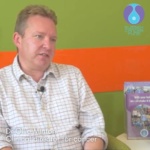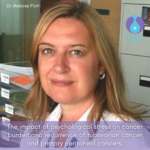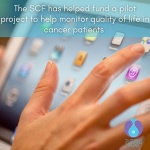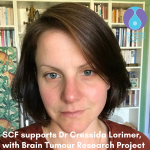
Cancer Research in West Sussex Supported by the Sussex Cancer Fund
The Sussex Cancer Fund supports several cancer research projects in West Sussex in conjunction with Brighton and Sussex Medical School. We have spent over £1million in the last three years supporting research projects across many treatment areas including blood, brain, breast & bladder cancers. We have three new projects for cancer research in West Sussex starting soon covering topics such as the HPV virus and cancer, leukaemia and advanced radiography techniques.
As well as directly funding projects for cancer research in West Sussex, the Sussex Cancer Fund also funds a Research Practitioner Role.
The resent Cancer Research ShowCase organised by students from the Brighton & Sussex Medical School highlighted some of the cancer research in West Sussex, funded by the Sussex Cancer Fund. You can view some extracts from the event in the video below.
Examples of Cancer Research in West Sussex funded by the Sussex Cancer Fund

Understanding the gut microbiome in relation to chemoradiotherapy for anal cancer – opportunities for intervention to improve patient outcomes.
The Sussex Cancer Fund is excited to be funding a project which aims to gain a more detailed understanding of the gut biome in relation to anal cancer and treatment programmes. The project is being carried out by Hamish Sinclair, Core Medical Trainee under the supervision of Dr Duncan Gilbert, Consultant in Clinical Oncology.
In oncology, there is emerging evidence that the composition of the gut microbiome might be able to predict responses to immune checkpoint inhibitors, and attempts to modulate the microbiome have the potential to improve patient outcomes.
Routine Use of Patient-Reported Outcome Measures in a Mixed Oncology Population.

The Sussex Cancer Fund is involved in a project on cancer research in West Sussex with the Enhanced Supportive Care team at the Royal Sussex County Hospital, to remotely collect quality of life data for cancer patients who may require palliative care input and provide them with additional support at an earlier stage. This project is headed by Dr Ollie Minton, Clinical Director for Cancer, and while simple in outline view has far-ranging benefits to patients and their care-givers. Through the digital reporting platform provided by ‘My Clinical Outcomes’ patients are asked to self-report their symptoms, the data collected is then coordinated through the software and available to patients and their care team. Any emerging changes in their symptoms and quality of life data can then be seen quickly and changes in care regimes implemented swiftly.

The impact of psychological stress on cancer burden and recurrence of tubovarian cancer and primary peritoneal cancers
The Sussex Cancer Fund is delighted to have awarded Dr Melanie Flint together with Ms. Sonali Kaushik, Consultant Gynaecologist and subspecialist in Gynaecological Oncology and their team £139k over the next three years to look at “The impact of psychological stress on cancer burden and recurrence of tubovarian cancer and primary peritoneal cancers.”
Whilst they have multiple projects for cancer research in West Sussex, they will be looking at organoid tumours in the lab and examining the effect of cortisol on immune/cancer cell co culture models. Once they have a better understanding of some of these changes, new treatment pathways can be developed for patients to prevent tumour recurrence. This may be through traditional stress-relieving methods such as exercise and mindfulness through to drug interventions where cortisol antagonists could be developed to stop the cortisol physically latching onto the stress receptors of cells.

Acute Myeloid Leukaemia Research.
The Sussex Cancer Fund is currently funding an exciting research project at Brighton and Sussex Medical School (BSMS) that is focused on discovering new treatments for a devastating disease called Acute Myeloid Leukaemia. The lead investigator on this project is Dr Tim Chevassut, Consultant Haematologist at the Royal Sussex County Hospital and Reader in Haematology at the University of Sussex, and the research itself is being done by Dr Helen Stewart, Senior Scientist, based at the BSMS Medical Research Building at Falmer. The project has recently lead to a major publication in a prestigious journal, Nature Communications.

Improving the care and experiences of older women with breast cancer
The Sussex Cancer Fund has been supporting a research project by Daisy Neal, looking at how improvements can be made to the care and experiences of older women with breast cancer.
Daisy Neal “Our research aims to improve understanding of the factors influencing variations in treatment of breast cancer patients, specifically with a view to improving the care and experiences of older women with breast cancer.”

The SCF has helped fund a pilot project to help monitor quality of life in cancer patients which will help form better treatment plans in the future.
The project known as the ‘Trigger’ Project which is a ground-breaking collaboration between Imperial College London, the University of Cardiff and the Sussex Cancer Centre. The official title of the project is “Collecting patient-reported outcome measures in patients receiving pelvic radiotherapy. Dr David Bloomfield, Consultant Oncologist said “The Trigger Project is an exciting project using technology to bring together some existing tools and data. The methodology used and the data compiled will ultimately both contribute to improvements to cancer treatments and quality of life in patients.” Read more: The ‘Trigger’ project to help monitor quality of life in cancer patients.
 The Sussex Cancer Fund is delighted to have offered a research grant to support a 3-year study into Acute Myeloid Leukaemia.
The Sussex Cancer Fund is delighted to have offered a research grant to support a 3-year study into Acute Myeloid Leukaemia.
Dr Eleni Ladikou is studying Acute Myeloid Leukaemia (AML). The cancer research in West Sussex project hopes to discover and study differences between two types of cancer cells associated with this disease. Cancer cells are present in the blood, which are detected and destroyed by regular cancer treatments such as chemotherapy. However other cells ‘hide’ inside the bone marrow. This makes these cells difficult to find and the bone marrow also gives a degree of protection to the hidden cells which mean treatments are often not effective. These hidden cells stick to the bone marrow, this research project hopes to discover how this ‘glue’ works. Read more: The Sussex Cancer Fund is delighted to have offered a research grant to support a 3-year study into Acute Myeloid Leukaemia.
 Quality of life experienced by patients after treatment for bladder cancer
Quality of life experienced by patients after treatment for bladder cancer
Dr Sally Appleyard is running a national study looking at the quality of life experienced by patients after treatment for bladder cancer. This group of patients often have the option of surgery or radiotherapy treatment – both aiming to provide long term control of the disease. However, there is little direct evidence about the long term side effects of both treatments and how they impact on individual quality of life. Dr Appleyard’s project will seek to inform both patients and health care professionals in making treatment decisions. In addition, the project will involve the use of novel “mobile – app” based data collection tools and an assessment of the ease of their use in this patient group. She is supervised by Dr Ashok Nikapota.
 Management of elderly patients with aggressive brain tumours
Management of elderly patients with aggressive brain tumours
The Sussex Cancer Fund also supported the research of Dr Cressida Lorimer, another clinical oncology registrar who completed her research in November 2018. She examined the management of elderly patients with aggressive brain tumours. There has been an international call for increasing the amount of research specifically aimed at older patients with cancer and there is currently a paucity of clinical trials amongst the neuro-oncology group. Dr Lorimer examined how we can better individualise treatment strategies, assessing patients’ clinical parameters alongside imaging and molecular biomarkers and has presented her work at a number of national and international conferences.
She set up a collaboration across UK neuro-oncology centres with a prospective feasibility study in the Sussex Cancer Centre, The Royal Marsden Hospital and The Beatson West of Scotland Cancer Centre. This project for cancer research in West Sussex looked at how older patients with brain tumours are assessed for treatment and the results were published in an international peer-reviewed journal. Dr Lorimer is currently still running a multicentre trial examining the use of pre-treatment scans to help try and predict who may be more prone to side effects from the radiotherapy treatment of brain tumours. This is open across 12 sites within the UK and results are expected in the spring of 2021. Dr Lorimer’s cancer research in West Sussex project was supervised by Dr Juliet Brock.
At The Sussex Cancer Fund, we run many projects to support cancer research in West Sussex. If you would like to learn more about projects for Cancer Research in West Sussex, then contact us today!


 Quality of life experienced by patients after treatment for bladder cancer
Quality of life experienced by patients after treatment for bladder cancer Management of elderly patients with aggressive brain tumours
Management of elderly patients with aggressive brain tumours